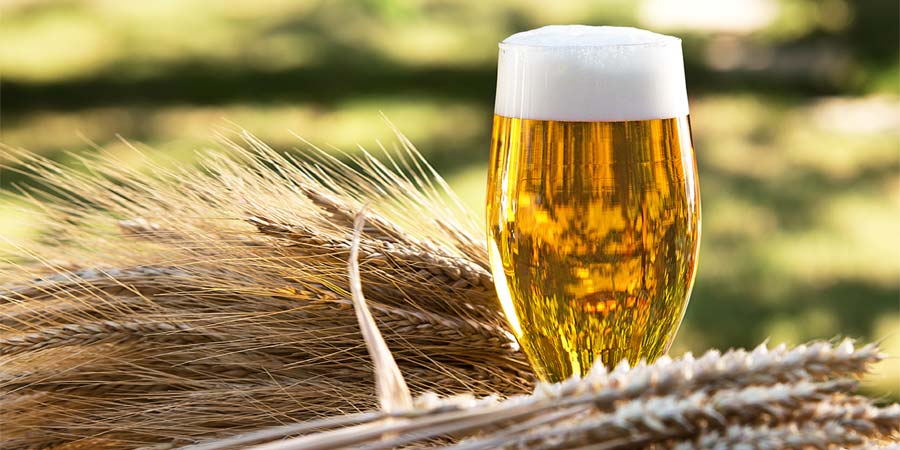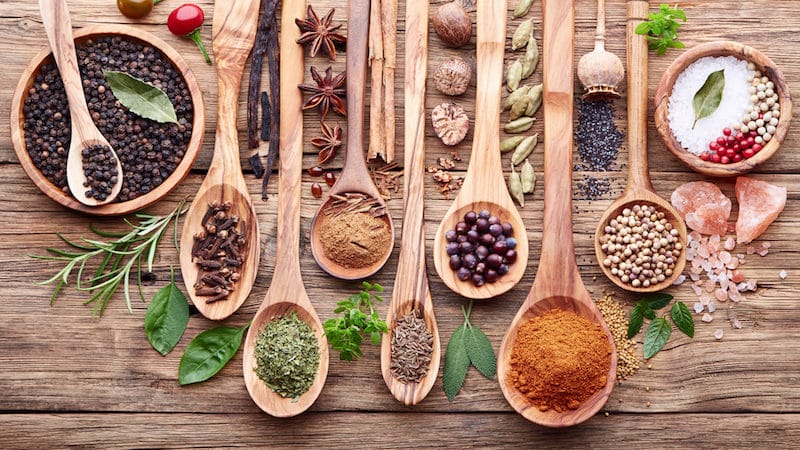In 1516, the Duke of Bavaria decided to enact what is known as a “purity law.” According to the law, beer could only be made with three ingredients: barley, water, and hops. Fortunately, there are no longer any purity laws, so you can get as creative as you want with your home brewing.
The Key Ingredients for Homebrewing

The homebrew ingredients you choose to put into your favourite booze will have a significant impact on its flavour! Furthermore, understanding how to prepare, cook, and use ingredients will help you master every beer you make. Although many homebrewers will tell you that there is a holy quadruplet of elements that must come first: water, sugar, yeast, and hop, homebrewing is so much more than that!
Hops
Hops are the cone-shaped flowers of the female hops plant Humulus lupulus. The hop plant is a distant relative of cannabis, but it lacks THC. Because of their acids and oil content, hops are added to the brew to make it bitter. Another benefit of adding hops is that it reduces the risk of spoilage and makes the frothy head last longer.
There are over 100 different types of hops to choose from. Some are bred as derivatives to favour a specific profile, while others are grown for aromas. When selecting your hops, keep in mind that some beers only use a particular variety. As a result, you won’t completely ruin the flavour, but it won’t be traditional. For instance, if you’re making an American Pale Ale, you should buy “C-hops,” also known as Chinook, Columbus, Centennial, or Cascade.
Grains
Grains are the homebrew ingredients many beer enthusiasts love to use for making their favourite beverage. Therefore, you can make your beer with just one type of grain or mix them up for different flavours and colours. The best grains on the market include barley, rye, wheat, corn, rice and oats.
Some beers, such as a Berliner Weiss, are made entirely of wheat, whereas a Japanese or light beer is made entirely of rice. Changing the grains you use will change the flavour richness and fullness of the head, so give them all a shot.
Malts

With your chosen grain in hand, you gain access to a more advanced ingredient – the malt. Before the grain can be used in the brewing process, it must first be converted into malt. Barley is the most common grain, but other grains such as wheat, rice, corn, oats and rye are also used depending on what is available. They must first be malted before barley and wheat can be added to the brew to make wort. The grain is malted, activating the seed and initiating the germination process. This allows the seed to process the natural starches in the grain and convert them to natural sugars, which the yeast feeds on during the fermentation stage of the brewing process. Some recipes call for pale malt, which is made by lightly roasting the grains to preserve enzymes. Others, such as Vienna or Munich malt, may require a higher temperature.
Sugars
Like any homemade vodka, homebrewers also like to use sugars to make their favourite booze! On the other hand, you can sometimes use rice, corn, wheat, or another grain to sweeten the brew. Instead of malting the grain yourself, it’s recommended for new brewers to use malt extract or malt syrup, both of which are widely available. It’s a difficult process that’s easy to mess up.
Water

Only experienced homebrewers know that the type of water you use in the process will influence the quality of your final product. We listed the quality of water as one of the beginner homebrewing mistakes for a reason. Because water makes up 90% of your beer, you want to make sure the clear stuff is tasty. It’s ok to use tap water if it’s safe and you like its taste. However, if your tap water can cause any issues and you dislike its taste, you should opt for filtered water, bottled water, or reverse osmosis water instead.
The quality of the water you use for homebrewing is essential since the minerals in the water could affect the flavour of your beer. For example, if the water contains calcium chloride or calcium carbonate, it may cause the hops to produce more bitterness. Meanwhile, sodium can kill yeast, causing the beer to become sour.
Beer Brewing Yeast
The stage where the yeast is added to the wort is called fermentation. The yeast has been dormant until it is placed in the wort, which must be at the correct temperature to bring the culture out of dormancy. Most beers contain Saccharomyces yeast strain, which means sugar fungus in Latin. The yeast is added, and it consumes the sugar, producing alcohol, carbonation, and other compounds such as esters and phenols that give the beer its distinct taste. Yeast will either rise to the top-ale yeast or sink to the bottom-brewer’s yeast and lager yeast.
The Ale yeast is top-fermented, which means it is added to the top of the wort. Ale yeast also prefers warmer wort, between 10 and 20 degrees Celsius.
On the other hand, Lager yeast is a bottom-fermented yeast that works at a lower temperature of fermentation, 7 to 13 degrees Celsius, at the bottom of the wort.
Flavouring & Spices

Herbs and spices can give your homebrew beer a whole new dimension while allowing you to be as creative as you want. There are many garden herbs that can impart a minty, grassy, herbal, floral, or vegetal flavour to your beer. Rosemary, lemon verbena, lemongrass, orange balsam thyme, chamomile, and other herbs have all found their way into beer.
When it comes to spices, the warmth of your beer can be obtained by adding a dash of cinnamon. Spruce has been used since the Viking era, and a chocolate-cherry stout with red pepper flakes is typical these days on Taco Tuesday.
Beer Finings
Finings is something you add to your beer in the fermenter at the end of the brewing process. These homebrew supplies don’t add flavour to the liquid, but they help remove unwanted compounds and improve clarity. After all, no one is enthralled by cloudy beer.

